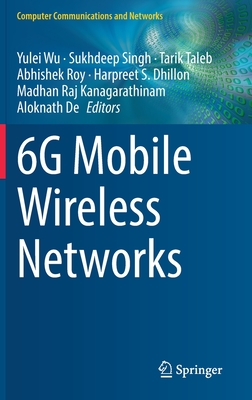相關主題
商品描述
Edge computing has been identified as one of the key technologies for 5G networks and beyond due to two prominent advantages: low network latency and reduced core network load. By empowering cloud capabilities and IT service environments at the network edge, edge computing can well support applications of 5G and beyond, such as augmented/virtual reality (AR/VR), vehicular network (ultra-reliable low-latency communication services),Internet of Things (massive machine type communication services), and mobile high-definition video (enhanced mobile broadband services). Therefore, edge computing has attracted the attention of both industry and academia since its emergence.
This book highlights the progress of 5G edge computing in both industry and academia according to our long-term efforts, including the current practice of public edge providers, the research process of edge computing from academia, the integration of edge computing with 5G, and the future visions of edge computing in the 6G era. From this book, the readers can benefit from: (1) the first comprehensive measurement study on a leading public edge platform, NEP (next-generation edge platform); 2) a clear and in-depth introduction of the key technologies of 5G edge computing; (3) the latest progress of 5G-integrated edge computing; and (4) pioneering exploration of 6G edge computing based on Tiansuan constellation - an open satellite-terrestrial integrated platform.
Both the researchers from academia or practitioners from industry can benefit significantly from this book.
作者簡介
Xiao Ma is a lecturer at the State Key Laboratory of Networking and Switching Technology, Beijing University of Posts and Telecommunications (BUPT). She received her PhD degree in the Department of Computer Science and Technology from Tsinghua University in 2018. From October 2016 to April 2017, she visited the Department of Electrical and Computer Engineering, University of Waterloo. She was selected into the 9th Young Elite Scientist Sponsorship Program. Her research interests include edge computing, satellite computing, and 5G/6G core network. She has published more than 30 papers, with recent work published on premier conferences/journals like INFOCOM/WWW/IMC/TMC/TSC/JSAC/TCC/TWC, etc. She is a winner of IEEE ICWS'23 and IEEE EDGE'21 Best Paper Award. She has served as a TPC Chair of IEEE Satellite'22, a PC member of IEEE ICWS'23, and a reviewer of IEEE TMC/TCC/TWC, GLOBECOM.
Mengwei Xu is an assistant professor and doctoral advisor with Computer Science Department, Beijing University of Posts and Telecommunications (BUPT). He obtained his PhD and Bachelor degrees both from Peking University. He was a visiting scholar in Purdue University during November 2018-November 2019. He joined the "Star-track" visiting professor program of Microsoft Research Asia (MSRA) from December 2020 to March 2021. He won the distinguished PhD thesis of ACM SIGMobile, China, 2021. His research interests lie in the intersection of edge systems and machine learning, with a recent focus on enabling state-of-the-art deep learning techniques on the resource-constrained edge devices. His work has been published on premier CS conferences like ACM MobiCom, MobiSys, UbiComp, USENIX ATC, and WWW.
Qing Li received her PhD degree in the State Key Laboratory of Networking and Switching Technology from Beijing University of Posts and Telecommunications and MS degree in the School of Telecommunication Engineering from Xidian University in 2022 and 2017, respectively. She is currently a postdoctoral fellow at the School of Computer Science, Peking University. Her research interests include resource scheduling and optimization in mobile edge computing and satellite edge computing.
Yuanzhe Li is a postdoc at the Institute for AI Industry Research (AIR), Tsinghua University. He received his PhD in 2022 from the State Key Laboratory of Networking and Switching Technology, Beijing University of Posts and Telecommunications (BUPT). His work won the Best Paper Award from CollaborateCom 2022. His research interests include 5G/6G, mobile edge computing, cloud computing, and service computing.Ao Zhou is an associate professor at the State Key Laboratory of Networking and Switching Technology, Beijing University of Posts and Telecommunications, China. Her research interests include service computing, cloud computing, and mobile edge computing. She has published more than 50 papers and received the Best PaperAward from IEEE SCC 2021. Her recent work can be found on premier journals such as IEEE TSC, IEEE TMC, IEEE TCC, IEEE TETC, and premier conferences such as WWW, INFOCOM, ICWS. She served as TPC Chair of IEEE DATACOM 2021, IEEE SAGC 2020, CBPM 2020, and CollaborateCom 2016. She was awarded the Rising Star Award of IEEE Technical Committee on Cloud Computing and the First Prize of WU WEN JUN AI Science and Technology Award of China.
Shangguang Wang is a professor at the School of Computer Science and Engineering, Beijing University of Posts and Telecommunications, China. His research interests include service computing, mobile edge computing, and satellite computing. He is the founder of Tiansuan Constellation and designed the BUPT-1 satellite. He is currently serving as Chair of IEEE Technical Committee on Services Computing. He also served as General Chairs or Program Chairs of 10+ IEEE conferences. He is a fellow of the IET and senior member of the IEEE.































